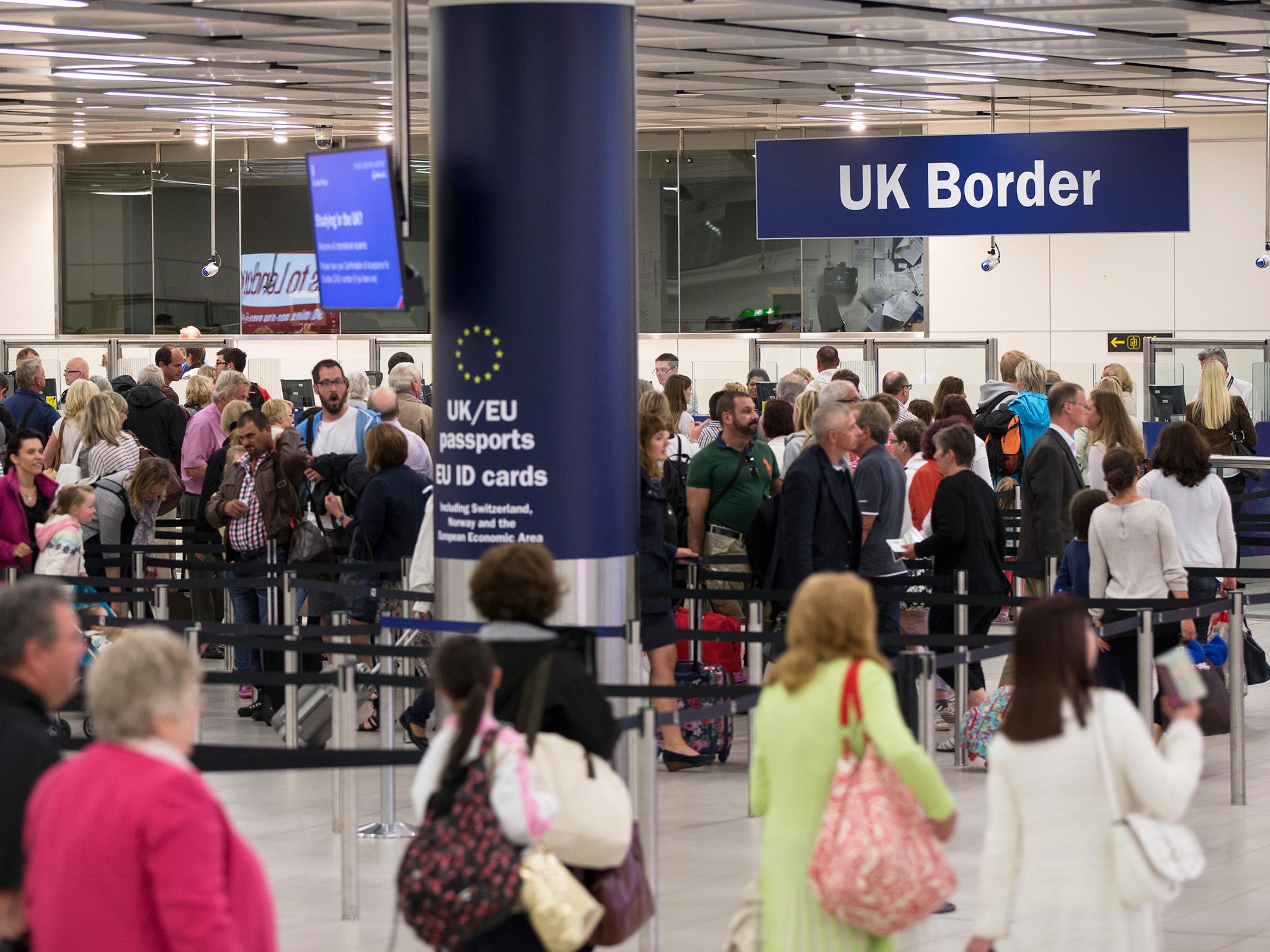Low-skilled EU migrants may have to get permits to work in UK following Brexit
EU citizens face an uncertain future in the UK following the referendum vote

Your support helps us to tell the story
From reproductive rights to climate change to Big Tech, The Independent is on the ground when the story is developing. Whether it's investigating the financials of Elon Musk's pro-Trump PAC or producing our latest documentary, 'The A Word', which shines a light on the American women fighting for reproductive rights, we know how important it is to parse out the facts from the messaging.
At such a critical moment in US history, we need reporters on the ground. Your donation allows us to keep sending journalists to speak to both sides of the story.
The Independent is trusted by Americans across the entire political spectrum. And unlike many other quality news outlets, we choose not to lock Americans out of our reporting and analysis with paywalls. We believe quality journalism should be available to everyone, paid for by those who can afford it.
Your support makes all the difference.Low-skilled EU migrants may have to apply for permits to work in Britain after Brexit, under plans being considered by the Government, it has been reported.
Sir David Metcalf, the head of the Migration Advisory Committee, told the Telegraph that both the number of migrants and the amount of time they spend in the UK could soon be controlled using work permits.
His comments came after the committee, which advises the Government on migration issues, published a report which found that migrants in low-skilled jobs had “a small negative impact on wages of low-paid workers”.
Sir David, a professor in industrial relations at the LSE, told the newspaper the scheme could be modelled on a previous work permit system for seasonal agricultural workers.
He said: “It would be remiss of the Migration Advisory Committee not to have actually done a bit of thinking about some of these things.
“I think it (work permits) is a pretty straightforward way and you already have a model that works.
“The agricultural scheme was terrifically well administered, it was one guy at the Home Office working with operators and farmers.
“It was time limited and capped. We could think of similar sectors where you have got a lot of unskilled European labour. That's very much tied up with what the Prime Minster is interested in.”
Theresa May has refused to say whether EU migrants already living in Britain will be automatically allowed to remain after Brexit, despite mounting political pressure calling for her to give the assurance.
In a report, Work Immigration and the Labour Market, the committee found that low-skilled migrants can cause some pressures on public services.
It states: “Costs, often focused in particular locations and sectors, include rapidly changing populations with possible implications for cohesion and integration.”
It said it can also cause “congestion” by putting “extra pressure on housing, education, health and transport services” and causes “a small negative impact on wages of low paid workers”.
It also warned that some migrants faced “serious exploitation” because of “inadequate enforcement of minimum labour standards”.
The report said the main benefits go to labour-intensive employers who often cannot get workers from the UK, and migrants who command higher wages in Britain than they would in their home countries.
It concluded: “Low skilled migrants have a neutral impact on UK-born employment rates, fiscal contribution, GDP (gross domestic product) per head and productivity.”
With additional reporting by PA
Join our commenting forum
Join thought-provoking conversations, follow other Independent readers and see their replies
Comments